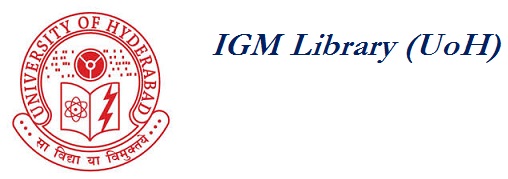Concluding unscientific postscript to the Philosophical crumbs / Søren Kierkegaard ; edited and translated by Alastair Hannay.
Kierkegaard, Søren, 1813-1855| Call Number | 198/.9 |
| Author | Kierkegaard, Søren, 1813-1855, author. |
| Title | Concluding unscientific postscript to the Philosophical crumbs / Søren Kierkegaard ; edited and translated by Alastair Hannay. |
| Physical Description | 1 online resource (xl, 539 pages) : digital, PDF file(s). |
| Series | Cambridge texts in the history of philosophy |
| Notes | Title from publisher's bibliographic system (viewed on 05 Oct 2015). |
| Contents | Concluding Unscientific Postscript to the Philosophical Crumbs -- Part 1. The objective problem of Christianity's truth -- Part 2. The subjective problem. The subject's relation to the truth of Christianity, or what it is to become a Christian -- Section 1. Something on Lessing -- Section 2. The subjective problem, or how subjectivity must be for the problem to appear to it -- Appendix -- Index. |
| Summary | Kierkegaard's Concluding Unscientific Postscript is a classic of existential literature. It concludes the first and richest phase of Kierkegaard's pseudonymous authorship and is the text that philosophers look to first when attempting to define Kierkegaard's own philosophy. Familiar Kierkegaardian themes are introduced in the work, including truth as subjectivity, indirect communication, the leap, and the impossibility of forming a philosophical system for human existence. The Postscript sums up the aims of the preceding pseudonymous works and opens the way to the next part of Kierkegaard's increasingly tempestuous life: it can thus be seen as a cornerstone of his philosophical thought. This volume offers the work in a new and accessible translation by Alastair Hannay, together with an introduction that sets the work in its philosophical and historical contexts. |
| Added Author | Hannay, Alastair, editor, translator. |
| Subject | Christianity Philosophy. Apologetics. |
| Multimedia |
Total Ratings:
0
02848nam a2200433 i 4500
001
vtls001598859
003
VRT
005
20230127111600.0
006
m|||||o||d||||||||
007
cr||||||||||||
008
230127s2009||||enk o ||1 0|eng|d
020
$a 9780511626760 (ebook)
020
$z 9780521882477 (hardback)
020
$z 9780521709101 (paperback)
035
$a (UkCbUP)CR9780511626760
039
9
$y 202301271116 $z santha
040
$a UkCbUP $b eng $e rda $c UkCbUP
041
1
$a eng $h dan
050
0
0
$a B4373.A472 $b E5 2009
082
0
0
$a 198/.9 $2 22
100
1
$a Kierkegaard, Søren, $d 1813-1855, $e author.
240
1
0
$a Afsluttende uvidenskabelig efterskrift. $l English
245
1
0
$a Concluding unscientific postscript to the Philosophical crumbs / $c Søren Kierkegaard ; edited and translated by Alastair Hannay.
264
1
$a Cambridge : $b Cambridge University Press, $c 2009.
300
$a 1 online resource (xl, 539 pages) : $b digital, PDF file(s).
336
$a text $b txt $2 rdacontent
337
$a computer $b c $2 rdamedia
338
$a online resource $b cr $2 rdacarrier
490
1
$a Cambridge texts in the history of philosophy
500
$a Title from publisher's bibliographic system (viewed on 05 Oct 2015).
505
0
$a Concluding Unscientific Postscript to the Philosophical Crumbs -- Part 1. The objective problem of Christianity's truth -- Part 2. The subjective problem. The subject's relation to the truth of Christianity, or what it is to become a Christian -- Section 1. Something on Lessing -- Section 2. The subjective problem, or how subjectivity must be for the problem to appear to it -- Appendix -- Index.
520
$a Kierkegaard's Concluding Unscientific Postscript is a classic of existential literature. It concludes the first and richest phase of Kierkegaard's pseudonymous authorship and is the text that philosophers look to first when attempting to define Kierkegaard's own philosophy. Familiar Kierkegaardian themes are introduced in the work, including truth as subjectivity, indirect communication, the leap, and the impossibility of forming a philosophical system for human existence. The Postscript sums up the aims of the preceding pseudonymous works and opens the way to the next part of Kierkegaard's increasingly tempestuous life: it can thus be seen as a cornerstone of his philosophical thought. This volume offers the work in a new and accessible translation by Alastair Hannay, together with an introduction that sets the work in its philosophical and historical contexts.
650
0
$a Christianity $x Philosophy.
650
0
$a Apologetics.
700
1
$a Hannay, Alastair, $e editor, $e translator.
776
0
8
$i Print version: $z 9780521882477
830
0
$a Cambridge texts in the history of philosophy.
856
4
0
$u https://doi.org/10.1017/CBO9780511626760
999
$a VIRTUA
No Reviews to Display
| Summary | Kierkegaard's Concluding Unscientific Postscript is a classic of existential literature. It concludes the first and richest phase of Kierkegaard's pseudonymous authorship and is the text that philosophers look to first when attempting to define Kierkegaard's own philosophy. Familiar Kierkegaardian themes are introduced in the work, including truth as subjectivity, indirect communication, the leap, and the impossibility of forming a philosophical system for human existence. The Postscript sums up the aims of the preceding pseudonymous works and opens the way to the next part of Kierkegaard's increasingly tempestuous life: it can thus be seen as a cornerstone of his philosophical thought. This volume offers the work in a new and accessible translation by Alastair Hannay, together with an introduction that sets the work in its philosophical and historical contexts. |
| Notes | Title from publisher's bibliographic system (viewed on 05 Oct 2015). |
| Contents | Concluding Unscientific Postscript to the Philosophical Crumbs -- Part 1. The objective problem of Christianity's truth -- Part 2. The subjective problem. The subject's relation to the truth of Christianity, or what it is to become a Christian -- Section 1. Something on Lessing -- Section 2. The subjective problem, or how subjectivity must be for the problem to appear to it -- Appendix -- Index. |
| Subject | Christianity Philosophy. Apologetics. |
| Multimedia |

